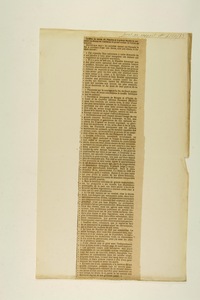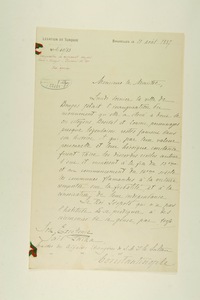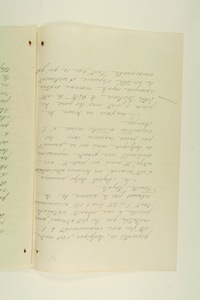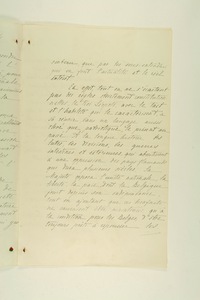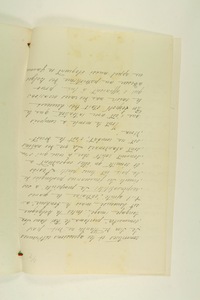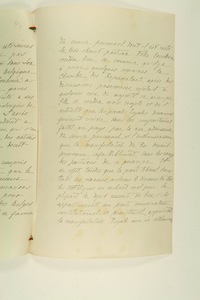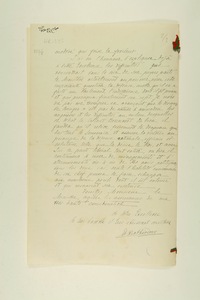Ottoman Diplomats
Letters from the Imperial Legation in Brussels (1849–1914)
Synopsis
Inauguration du monument Breydel-Coninc à Bruges. - Discours du Roi. - Une annexe.
Etienne Carathéodory Effendi reports about the inauguration of the monument of Jan Breydel and Pieter De Coninck in Bruges and the speech of King Leopold II on this occasion. He mentions that Breydel and De Coninck were famous and almost legendary Belgians, whose heroic perseverance, at the end of the thirteenth and the beginning of the fourteenth centuries, led to the victory of the Flemish towns over feudality and to the ratification of their independence. King Leopold II, who usually did not lend himself to ceremonies of this kind, did not hesitate to accept the invitation to chair this national celebration, because it gave him the opportunity to appeal to the people’s patriotism. Carathéodory approves of the King’s remarkable and eloquent speech, leaving a big impression in Belgium and abroad. Carathéodory remarks that especially the implied content of the speech was remarkable. To the long history of battles and divisions, the King opposed national unity, liberty and peace, that reigned since Belgium’s independence. The King stated that these blessings could only be maintained if the people were willing to roll back greed and aggressions from outside. Carathéodory quotes parts of the speech, and explains that this implied his support of the bill on personal military service, that had been rejected in the House of Representatives. Those who were in favour of that bill (the liberals and the government), were enthusiastic about the speech. Carathéodory also approved of the bill (for an ‘efficient’ and ‘salutary’ national defence), but was rather pessimistic about the future of the divided Catholics. (In attachment is a newspaper clipping containing the text of the speech.)
Attachments
Newspaper clipping (title unknown, date unknown, newspaper unknown, The article contains the speech given by King Leopold II on the occasion of the inauguration of the Jan Breydel and Pieter De Coninck monument - in August 1887 - implying the King's support of the bill on personal military service.)
Facsimiles
| Series | HR.SYS-222-8 |
|---|---|
| Place | Brussels |
| Date | 20-08-1887 |
| Author | Etienne Carathéodory Effendi |
| Recipient | Saïd Pacha |
Names
How to cite
If you use this website for your own research, we kindly ask you to mention the following reference in your publications:
Consulted online at Ottoman Diplomats: Letters From the Imperial Legation in Brussels (1849–1914) (2014 Edition), Centre for Political History (PoHis), University of Antwerp, <http://dighum.uantwerpen.be/ottomandiplomats/>.
